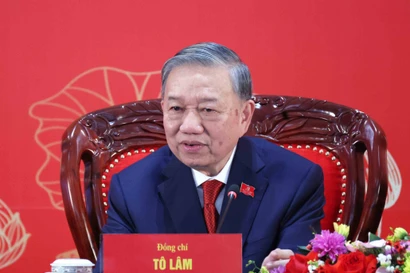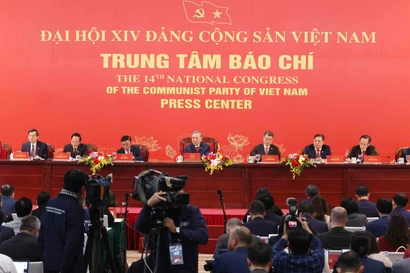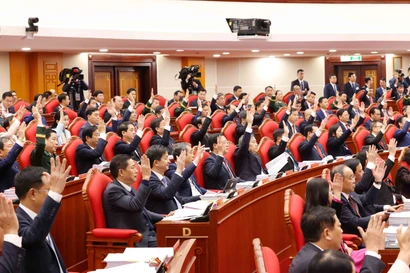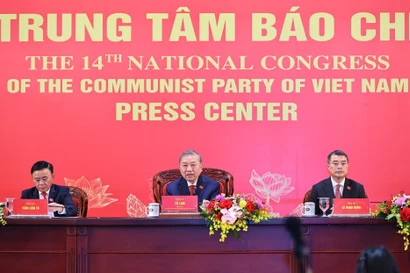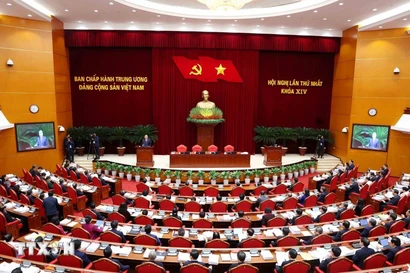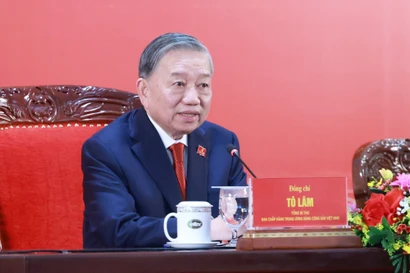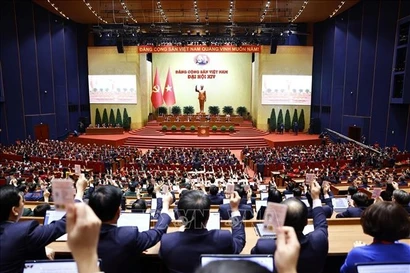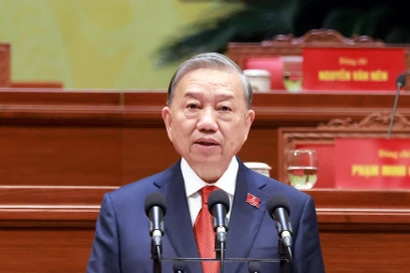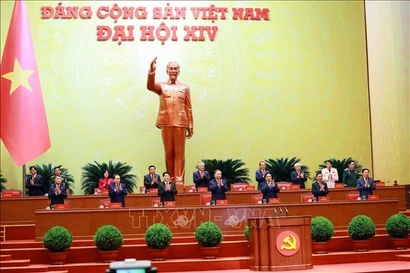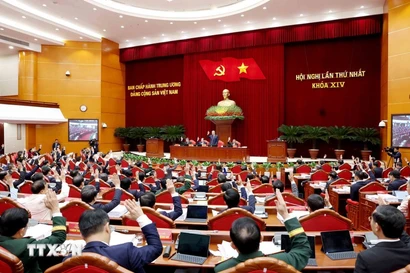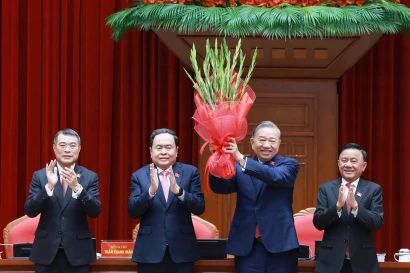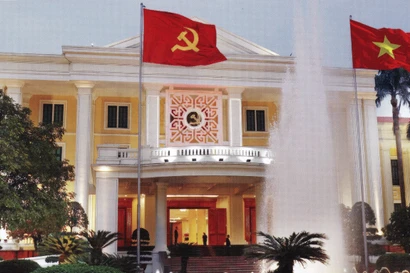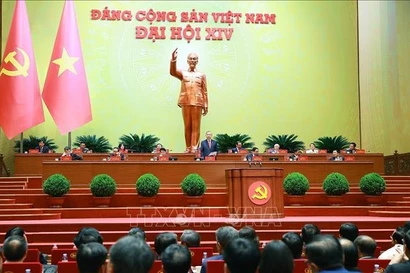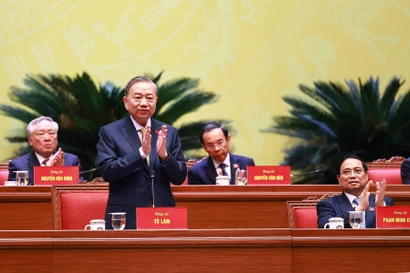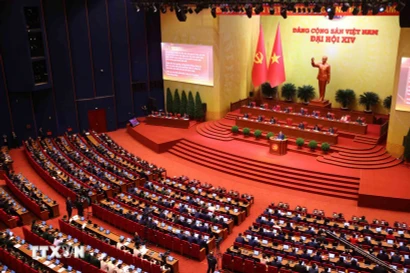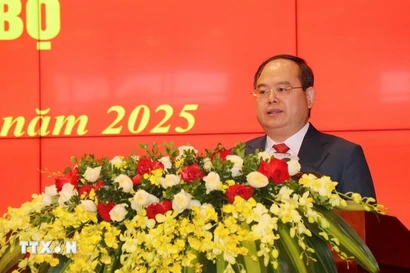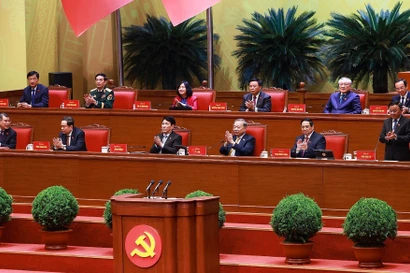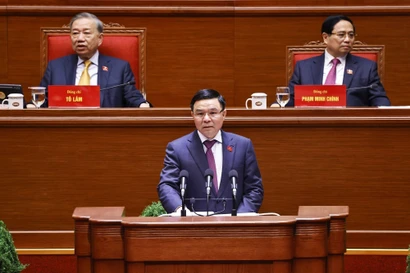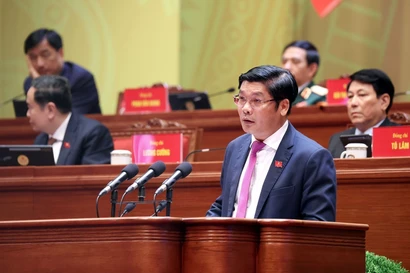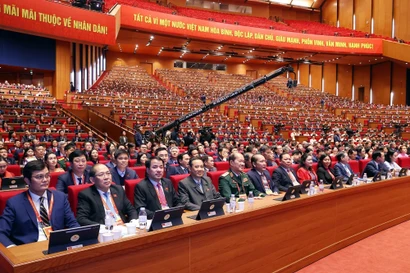
Hanoi (VNA) - Drastic efforts are underway to leverage and promote the efficiency of the three strategic breakthroughs defined by the Party - institution, infrastructure, and human resources, serving the nation’s growth, said Prime Minister Pham Minh Chinh.
Speaking at a group discussion on November 4 as part of the National Assembly's 10th session on the draft documents for the 14th National Party Congress, the PM affirmed that although they were first introduced at the 11th National Party Congress, the three breakthroughs remain highly relevant and must be further enhanced to boost national development. He noted that for infrastructure, total public investment during this tenure has increased by 55% from the previous one.
Strategic infrastructure, including expressways, high-speed railways, energy, healthcare, education, culture and climate-adaptive systems, has been developing rapidly. Decentralising the management of expressway projects to localities - a new approach in this term - has proved highly effective, with many provinces now implementing projects faster than central ministries.
PM Chinh stressed the need to clearly define the roles of central and local authorities in infrastructure development under the principle: “The Party leads, the State facilitates, enterprises take the lead, the public and private sectors act together, for a prosperous nation and a happy people.”
Greater delegation of power must go hand in hand with resources allocation, oversight and capacity building at all levels, he said.
On institutional reform, the PM agreed that a fundamental shift in legislative thinking is required - from a mindset focused on management to one oriented towards fostering development. Laws should serve as both a driving force and a resource for growth, built on and tested by realities.
Citing bottlenecks in project implementation, he noted that while both open bidding and direct contracting are necessary, the decisive factor remains “the accountability of officials.” He underscored that laws must be realistic and effective while encouraging initiative, responsibility and integrity among implementers.
Reiterating the Party and State’s consistent view that development must be rapid, sustainable and inclusive, the PM said sustainability encompasses people, the environment and social welfare. Vietnam does not trade social justice, progress or environmental protection for economic growth.
This principle is reflected in significant investments in social welfare - 1.1 quadrillion VND (41.79 billion USD) this term, or roughly 17% of GDP. Vietnam has effectively realised the motto “leaving no one behind,” achieving the UN Millennium Development Goals a decade early and making notable progress in poverty reduction and rural development.
Regarding great national solidarity, the Government leader emphasised that unity has always been a vital source of national strength. He underlined that solidarity must be expressed across all dimensions - within the Party, among the people, and internationally - as it serves as the foundation for cooperation, dialogue and trust-building.
At the same time, he highlighted culture as an “endogenous strength” and affirmed the guiding principle that “as long as culture remains, the nation endures.”
On economic growth, he acknowledged that a growth target of over 8% is ambitious but necessary to achieve strategic goals, expressing confidence in the resilience of the Vietnamese people.
Regarding climate change, the PM noted that global challenges require solidarity, multilateralism and international cooperation./.
